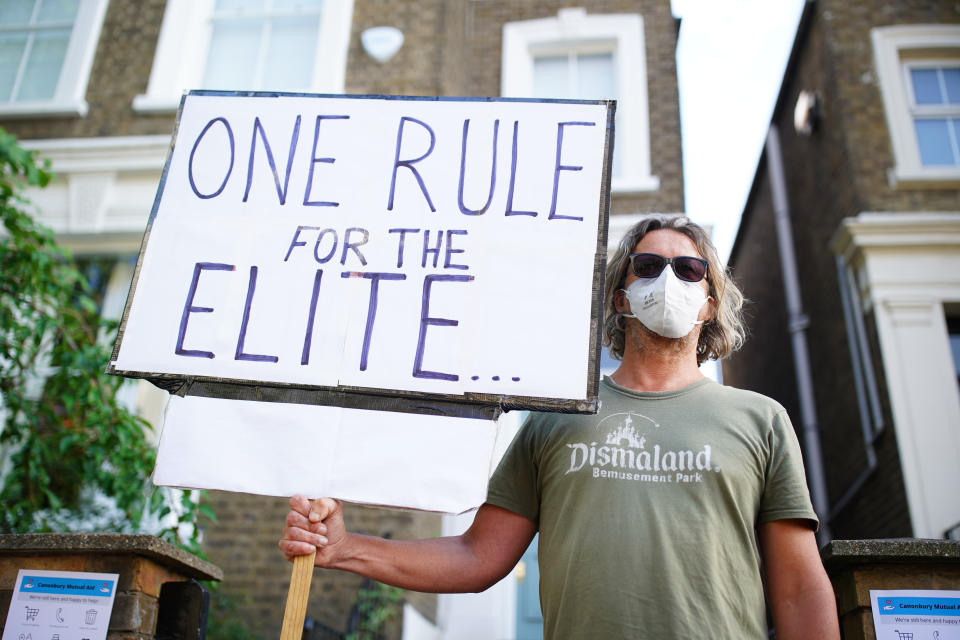'Cummings Effect' saw public's trust in government pandemic response plummet


Public trust in the UK government and willingness to adhere to coronavirus guidelines plummeted after the row erupted over Dominic Cummings lockdown trip to Durham, a study has found.
The research by University College London found a ‘Cummings effect’ between 21-25 May led to a loss of confidence in the central government.
Participants in the survey were asked how much confidence they had in the government’s handling of the epidemic from one (not at all) to seven (lots).
Between 21-25 May, it dropped in England by 0.4 points on this scale.
The row erupted when the media reported Cummings, Boris Johnson’s chief advisor, had driven to Durham with his wife who had suspected Covid-19 symptoms and his child, during the heigh of lockdown in March.
Over the course of several days in May, increasing revelations about his journey were uncovered and dominated headlines.
Durham Police said Cummings ‘might have’ broken lockdown rules, but the force did not take any further action against him.
The backlash saw several high profile Tory MPs call for Cummings to be sacked, but the Prime Minister backed him and said his advisor had acted “acted responsibly, legally and with integrity”.
The affair came to end when Cummings held a press conference at 10 Downing Street where he defended his actions, including saying he made a 50 mile round trip from Durham to Barnard Castle to ‘test his eyesight’.
Lead author of the study, Dr Daisy Fancourt said trust in the government increased as the pandemic started, but it started slipping after lockdown started to be eased, with a further sudden decrease after the Cummings debacle.
“Public trust in the government’s ability to manage the pandemic is crucial as it underpins public attitudes and behaviours at a precarious time for public health,” Dr Fancourt said.
The research, published in The Lancet, analysed over 220,000 survey results from more than 40,000 individuals between 24 April and 11 June to ascertain the negative impact Cummings actions.

Public trust in the government has not recovered from the Cummings effect, with trust in the English government and the devolved nations widening over time.
Police reported in the days after the debacle that people were using Cummings actions to justify breaking lockdown.
Read More:
Minister denies chief nurse was silenced for refusing to back Cummings
Piers Morgan blames Dominic Cummings for 'destroying' lockdown
How face mask rules are changing this Saturday
At the time Cummings left London on 27 March to travel to Durham, the nation was just entering the worst phase of the pandemic, with most people confined to their homes on government orders.
There was widespread accusations after Cummings trip was revealed of there being one rule for the top and another for the rest.
Cummings refused to apologise for his actions and justified his trip by saying with both him and his wife falling ill, they feared they would not have access to childcare for their young child.
He claimed by staying in a house on his family’s estate in Durham they would be able to get the support they needed.

The research also found the publics’ willingness to adhere to the guidelines had begun to slip prior to Cummings actions, but the decline increased in the weeks after, especially in England.
The researchers found there was no evidence of a similar large drop in confidence in the governments of the devolved nations in Scotland and Wales.
The central government was also compared to confidence in the health service and the ability to access essentials like food and medicine and found there was no evidence of a drop in trust during the same period.
Coronavirus: what happened today
Click here to sign up to the latest news and information with our daily Catch-up newsletter

 Yahoo Sport
Yahoo Sport 





































